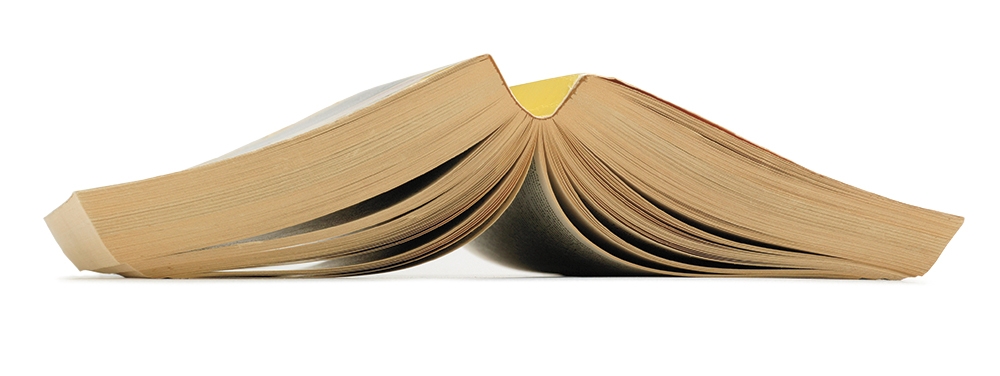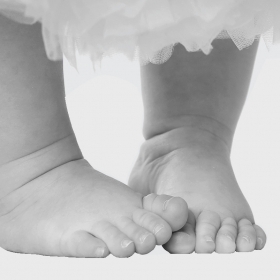Mere days before I turned 3, my parents and I got on a plane from Beirut to New York City. We were only supposed to be in America for a year and a half. By then, my parents hoped, the civil war that was squeezing and twisting the guts of Lebanon would be over, and we’d return to pick up life more or less where we’d dropped it. You’ve heard this story before: The fighting blustered on, and we stayed. My brother was born, an American citizen from his first breath. A few years later, we all joined him in a naturalization ceremony.
We visited Beirut nearly every summer, where my brother and I were always les petits cousins américains. Everyone would beam at us, kiss us three times, tell us they loved us very much, stay for an extra-long meal, and then vanish. I chalked it up to the age difference—almost everyone we saw was older than I was, and considerably older than my brother—and didn’t worry much over whether I felt more American or more Lebanese. I only hoped the bookstore up the street contained enough Agatha Christies to see the summer out. I wandered my aunt’s garden in Faraya, imagining Mr. Darcy behind every hedge; I read about David Copperfield reading the Arabian Nights. A few years later, my grandmother’s parlor became a second setting for required summer reading: How Green Was My Valley, Vanity Fair, Their Eyes Were Watching God. So many books remind me of an embroidered blue couch in a room with a balcony that looked out to the Mediterranean.
Then came the spring that my grandmother, aunts, uncles, and cousins all piled onto planes to see us, while I lay unconscious in Boston Medical Center. I became disabled practically overnight at the age of 16, and I resented all of it: the doctors, the occupational therapists, the wheelchair, the scar that stretched across my scalp like a headband, the extraordinary trouble I had piecing sentences together. Most of all, I resented the suggestion that this was going to be a permanent condition. Since the word “disabled” has no gradations, and I was obviously going to get better, I refused it utterly. There was no need for acceptance just yet.
Back when I started to come around in the rehabilitation hospital, the nurses asked my mother to bring in familiar objects that would remind me of home, of my life. Did I play any sports? Did I love any bands in particular? “She likes to read,” answered my baffled mother, and brought in a book of short stories. I could barely speak, but I could read—and with one eye shut because of my newly acquired double vision, I made my way ever so slowly through Mama Makes Up Her Mind and Other Dangers of Southern Living. My tattered copy of Pride and Prejudice had been in the hospital room ever since I’d opened my eyes, and my English teacher visited, bringing as a gift Northanger Abbey. My friends came with cassette tapes of The Hitchhiker’s Guide to the Galaxy. Words on a page, Regency manners, the Infinite Improbability Drive—ideas, not objects, but all familiar. I remembered this. Surely, in time, everything would come back to me.
It took longer than I would have liked. After a difficult year, I went to Wellesley, grudgingly, because it was close to home. I didn’t feel like a Wellesley Woman by a long shot; I didn’t even feel sure on my feet without my leg brace and my cane. Besides, at 17, I thought I was too young to be called a woman, and I missed having boys around. But finding that I had a lovely roommate and brilliant professors, I decided to take it day by day. Tower Court East and Severance Hall are my second settings for Middlemarch, The Master and Margarita, Eugene Onegin, and The Mystery of Edwin Drood. I wish I’d realized from the moment we had to break through creeping ivy to open the window to our room that Wellesley was going to work out after all.
Most of my identifiers—woman, immigrant, Lebanese, American, disabled—exist in opposition. I didn’t really feel the pressures of being a woman until I left Wellesley. Where I’m from depends on who’s asking. Now that I’ve gotten stronger, whether I’m disabled or not depends again upon who’s looking at me. (One of the most surprising moments of my life took place on Marathon Monday a few years ago, when a man chuckled and asked if I’d gotten hurt running.) The fact is that most of our identities are imposed on us by a throw of the dice.
But I am always a reader. No matter the country, no matter who I’m talking to, that’s my first identity, the one I’ve always chosen. My tastes have moved a little distance (from Hertfordshire to Portsmouth, for one), and I have less time to read these days, but I still love a good, gleeful natter about novels with just about any fellow reader—most especially one who went to Wellesley, too.
Carine Tarazi ’03 is a writer and editor in Brookline, Mass.






